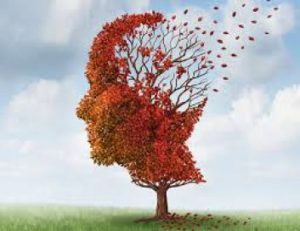Heart disease, cancer, stroke, chronic lower respiratory diseases, Alzheimer’s disease and diabetes continue to be leading causes of death among older adults, based on the Center for Disease Control & Prevention (saving lives and protecting people…CDC). They also provide the following:Baby Boomers for the next 25 years equating to over 70 million people can live longer lives with them combining to double the population of older Americans in the next quarter of a century. Baby Boomers can take steps to live long and healthy lives as opposed to a lot of their parents who died much younger. Living healthier will play a positive impact on the health care system. Starting a step towards prevention or treatment (Rx) of a present disease that you can improve is a mission we Americans owe to ourselves, our young ones, and to our nation’s future.
Through healthy dieting and behaviors (Ex. activity, nutrition, staying in your therapeutic body mass index, controlling stress both physically and mentally, oral health and dealing with any disability reaching the optimal health level you can reach) you can reach a healthier way to living. If the majority of our nation lives healthier, shows progress in promoting prevention, improving the health and well-being of older adults with reducing behaviors that contribute to premature death and disability will increase a healthier population in the U.S.
Baby boomers should do the following with starting good diet and exercise; start young! Include with doing the following when your general practitioner recommends its time in your life later or even now for:
Getting Screened:
Get screened including flu vaccine, pneumonia vaccine, colorectal cancer screening, and mammography for women.
Mammography is the best available method to detect breast cancer in its earliest, most treatable stage before it is big enough to feel or cause symptoms. Women aged 50 and over should get mammograms every two years.
Colorectal cancer screening tests can find precancerous polyps so that they can be removed before they turn into cancer. They can also detect colorectal cancer early, when treatment works best. Older adults should be screened for colorectal cancer by having a fecal occult blood test during the past year or a colonoscopy within 10 years.
Get Vaccinated:
Flu and pneumonia is the seventh leading cause of death among adults 65 years or older, despite the availability of effective vaccines. Older adults should get the flu vaccine every year and get the pneumonia vaccine at least once.
Be Physically Active
Regular physical activity is one of the most important things older adults can do for their health. Physical activity can prevent many of the health problems that may come with age, including the risk of falls.
How Much Activity Do Older Adults Need?
2 hours and 30 minutes (150 minutes) of moderate-intensity aerobic activity (i.e., brisk walking) every week and muscle-strengthening activities for 2 or more days a week that work all major muscle groups.
OR
1 hour and 15 minutes (75 minutes) of vigorous-intensity aerobic activity (i.e., jogging or running) every week and muscle-strengthening activities on 2 or more days a week that work all major muscle groups.
OR
An equivalent mix of moderate and vigorous-intensity aerobic activity and muscle strengthening activities on 2 or more days a week that work all major muscle groups.
Eat Fruits and Vegetables Daily
Diets rich in fruits and vegetables may reduce the risk of some cancers and chronic diseases, such as diabetes and cardiovascular disease.
Quit Smoking
Tobacco use remains the single largest preventable cause of disease, disability, and death in the United States. For help visit www.smokefree.gov.
Take Medication for High Blood Pressure and Diabetes
High blood pressure & Diabetes is a major risk factor for cardiovascular disease, it’s one of the leading causes of illness and death among older adults. More than ½ of Americans don’t have their blood pressure under control. Compliance is so essential in treating HTN, Diabetes or any disease including what your M.D. feels you need as a medication, if needed. The only way to find out is by seeing your health care providers, such as doctors, nurses, and pharmacists, who can track their patient’s blood pressure, prescribe once-a-day medications, and give clear instructions on how to take blood pressure & diabetic medications.
Take good care of your skin from childhood throughout your elder years. Why? Skin is the largest organ of the body and skin cancer is the easiest to treat when detected early and not blown off seeing the doctor. Before that take care of the skin by: Wearing Sun Screen for protection from getting skin cancer! Keep temperatures on average at room temperature and since hot temps dry out the skin. Limit Sugar Intake. Overeating sugar can lead to wrinkles and sagging skin. Ge
Patients should take the initiative or responsibility to monitor their blood pressure and sugar levels (finger sticks) between medical visits and know what abnormal values to report to their MD. Including taking their medications as prescribed, tell their doctor about any side effects, and make lifestyle changes, such as eating a low-sodium/low-calorie diet, exercising, and stopping smoking.
Do you want a better body, or a healthier society making our country America better overall? Well here are a few tips in getting started:
- Positive Attitude – Keep a positive attitude through life. Focus on the positive, taking hold of any problems and addressing them properly and you will find that you will be happier in your life.
- Don’t “Act Your Age” – Forget that “number” – it’s only a number, after all! Live life looking forward to activities and actions that make you smile and forget about your age!
- Be Proactive – Take charge of your health and research the many ways you can use your Health Insurance to take proactive steps in keeping healthy. You’re entitled to a variety of healthcare screenings as you get older; and it’s important to know exactly what tests and screenings you should behaving, based on your age and gender.
- Try Something New – It’s never too late to make changes and become a whole new you! Take up a new hobby, learn a language, take a class, or join a book club. Making your life interesting is one of the best ways to focus on healthy aging.
- Embrace Your Creativity – You may be surprised that you have an artistic side to you if you check out classes on painting, sketching or drawing. If your art talents are limited try adult coloring books that you can color with pencils.
- Surround Yourself With Positivity – Your mental health plays a very important part in healthy aging and surrounding yourself with people who make you smile and laugh makes healthy aging even easier.

